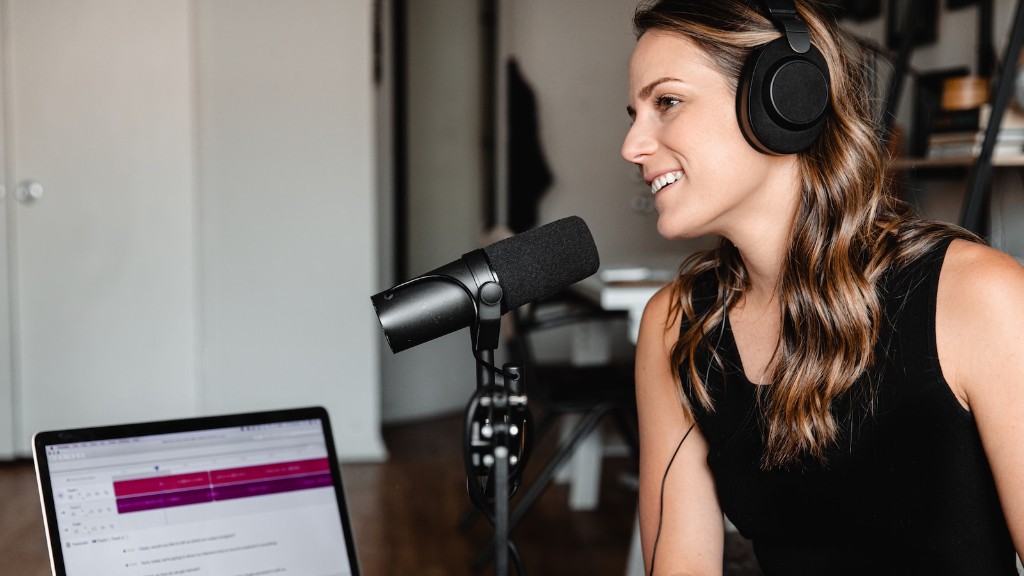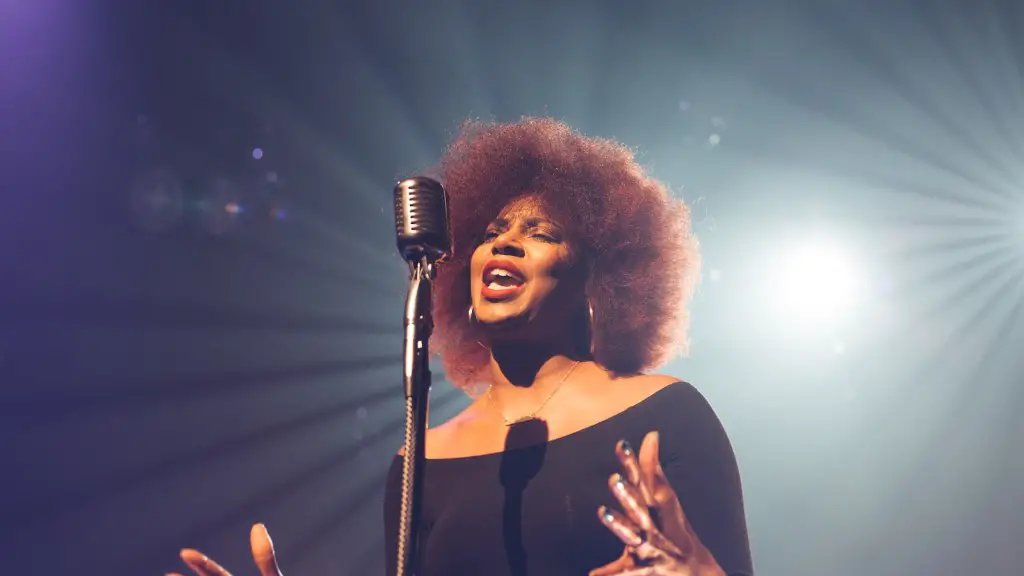In order to compose on guitar, you need to have a clear understanding of how to create melodies and chord progressions. The guitar is a very versatile instrument, so you can use a variety of techniques to create your compositions. You can start by coming up with a basic melody, and then adding chords to it. You can also experiment with different strumming patterns and rhythms to create interesting sounding guitar parts. Once you have a basic idea of how to compose on guitar, you can start adding your own personal touches to make your compositions unique.
First, choose the key you want to compose in. This will determine the chords you will use. Next, brainstorm ideas for the melody and chord progression. Once you have something you like, start working out the details on your guitar. Don’t be afraid to experiment and make changes along the way.
How do you write guitar notes?
To start transcribing the notes of a song, play the song slowly and write down the fret numbers for each string on the corresponding lines. To transcribe a chord, write the fret numbers for each string stacked on top of each other in a vertical column.
1. Compose a catchy melody – A great melody is the foundation of any good song. Catchy melodies are usually pretty simple, and they tend to be easy to remember. If you can write a melody that people will be humming long after they’ve heard your song, you’re on the right track.
2. Use all types of chords – A variety of chords will give your song more interest and texture. Don’t be afraid to experiment with different chord progressions to find what sounds best.
3. Create a memorable rhythm – A strong rhythm can really make a song groove. Pay attention to the rhythms of your favorite songs and see if you can incorporate them into your own writing.
4. Build your song around a riff – A great riff can be the driving force behind a really killer song. If you can find or create a catchy riff, it will give your tune a lot of energy and make it more memorable.
5. Write a song you can play live – If you’re planning on performing your song live, make sure it’s something you can actually play. There’s nothing worse than getting onstage and realizing you can’t recreate your song exactly
How do beginners start songwriting
These are some tips for beginners who want to start songwriting:
1. Read articles and books from those in the music industry and well-known musicians who have years of experience with songwriting. This will give you a good foundation of knowledge to work from.
2. Listen to a lot of music and watch music videos to get an idea of what makes a good song.
3. Brainstorm ideas by yourself or with friends. Write down any ideas that come to mind, no matter how silly they may seem.
4. Once you have a few ideas, start piecing them together to create a song.
5. Sing your song aloud to see how it sounds and feels. Does it flow well? Do the lyrics sound and feel right?
The minor key is often associated with sad or depressing emotion in music. This is because the minor key uses a lot of minor and diminished chords, which tend to sound more sad or depressing. If you want to create a sad or depressing feeling in your music, using a minor key is a good place to start.
Where do I begin guitar notes?
There are a total of six strings on a guitar, and each string has a different note. The standard tuning for a guitar is as follows:
E – the highest note
A
D
G
B
E – the lowest note
So, when you play a guitar with standard tuning, the notes you will hear are E, A, D, G, B, and E. If you want to learn how to play guitar music, it’s important to memorize the notes of each string. Once you know the notes, you can begin to learn how to play chords and melodies.
There are three basic chords that every guitar player should know how to play: C, F, and D. The C chord is probably the most common chord of all time, and the F chord uses a related shape. The D chord uses a little different chord shape.
Can I teach myself to compose music?
Learning to read and understand music notation and theory is essential for any serious composer. Without this knowledge, your growth as a composer will be limited. You will be unable to fully understand what you are writing, and what others have written in the past. This will eventually lead to your inspiration drying up.
Exercise: Simple Syllables
Create a lyric using one headline from your list.
Count the number of syllables in that lyric.
Say the words several times out loud.
Listen to the rhythmic pattern of the line.
Write a new lyric from scratch that works well with the first lyric.
Is it hard to compose a song
If you’re looking to write a good song, there are a few things you can do to help yourself out. First, try to come up with a catchy melody or hook. This will be the part of the song that people remember and sing along to. Second, focus on your lyrics and make sure they’re telling a story or conveying a message that you want to get across. Lastly, don’t be afraid to experiment with different sounds and styles until you find what works best for you. Writing a good song takes time and effort, but it’s definitely worth it when you hear people singing your song back to you.
You are not alone. Many songwriters find it difficult to write lyrics, melodies, or even find unique ideas for songs. However, there are ways to overcome these obstacles.
One way to overcome difficulty with lyrics is to brainstorm. Get a group of friends together and come up with a list of potential song topics. Once you have a topic, start brainstorming lyrics. Write down any and all ideas that come to mind, no matter how silly or clichéd they may seem. Once you have a few ideas written down, start playing around with them. See what sounds best and what fits the melody you have in mind.
If you’re having trouble with the melody, try experimenting with different chord progressions. See what sounds good with the lyrics you have written. You may also want to try messing around with different time signatures or tempos. Again, the goal is to find what sounds best with your song.
If you’re having trouble finding a unique idea, try looking at the world around you. What’s happening in your life? What’s happening in the world? Are there any current events that you feel passionate about? try to write a song about something that you care about. This will help to make your song more personal and
Is songwriting a skill or a talent?
It is true that some people are born with a natural talent for songwriting. These people are able to take an idea or feeling and turn it into memorable lyrics and melody that resonate with others. For many, songwriting is a highly personal process that allows them to express themselves in a unique and powerful way.
There are a few things to keep in mind when writing a song on guitar. First, you need to learn some basic chords. Second, you need to choose a chord progression that you like. Third, you need to come up with a melody and lyrics that fit the chord progression.Fourth, you need to add rhythm to your song. Fifth, you need to add more phrases to your song. Sixth, you need to write a chorus for your song. Seventh, you need to give your song a structure. Eighth, you need to add dynamics to your song.
What is the devil’s chord on guitar
The tritone is a very unique sounding chord, and it’s one that can be both very beautiful and very unsettling. It’s made up of two notes that are three whole steps apart, which gives it a very wide range. This can make it difficult to use in a traditional chord progression, but it can also add a lot of flavor and interest. Because of its unique sound, the tritone has been nicknamed “the Devil’s Chord.”
For most people, 30–90 minutes per day seems to be a good goal. Total beginners may see good results in just 15 minutes per day. However, it is important to keep in mind that everyone is different and that some people may need to spend more time working out in order to see results.
What is the prettiest chord on guitar?
Guitar chords are a great way to add beauty and emotion to your music. However, many guitarists find them difficult to play. Here are 9 beautiful chords that are actually quite easy to play on guitar.
Cadd9: This chord is simply a C major triad with an added 9th. To play this, simply fret the 2nd, 3rd, and 4th strings at the 2nd fret.
Gsus4: This chord is similar to a G major, but with the 4th fret replaced with a sus4. To play this, simply fret the 2nd, 3rd, and 4th strings at the 2nd fret.
Em9: This chord is simply an E minor triad with an added 9th. To play this, simply fret the 2nd, 3rd, and 4th strings at the 2nd fret.
Am(add9): This chord is simply an A minor triad with an added 9th. To play this, simply fret the 2nd, 3rd, and 4th strings at the 2nd fret.
Amaj7: This chord is simply an A major 7th. To play this, simply fret the 2nd, 3rd, and
It takes a lot of practice to learn how to play the guitar. On average, it takes about 300 hours of practice to learn the basic chords and feel comfortable playing the guitar. If you practice for two hours a day – every day – it will take five months to master the basics. If you practice for an hour every day, it will take you ten months.
What should A beginner guitarist focus on
Once you have learned some new chords, it is important to focus on them and get used to changing between them and other chords you have learned in previous sessions. A metronome or backing drums can help you develop your rhythm and timing around these chord fingerings. Try and strum a simple sequence using these chords.
A guitarists needs to learn a few things in order to improve their guitar skills. These include: reading standard music notation, tablature, and open position notes; essential music theory; basic open position chords; strumming patterns; tuning by ear; barre chords; and pentatonic scales. By learning these things, a guitarist will be able to play better and improve their overall guitar skills.
Conclusion
Playing the guitar is a skill that can be learned relatively easily. The following steps can help you start composing your own music on the guitar:
1. Choose the right guitar. There are many different types of guitars available on the market, so it is important to select the one that is best suited for your individual playing style. If you are a beginner, it might be a good idea to purchase an acoustic guitar.
2. Learn the basic chords. In order to compose music on the guitar, you need to know how to play chords. Start by learning some of the basic chords such as A, D, E, and G. Once you have a good grasp of these chords, you can start experimenting with different chord progressions.
3. Experiment with different strumming patterns. One of the great things about the guitar is that there are endless possibilities when it comes to strumming patterns. Experiment with different patterns and find the ones that sound best to you.
4. Have fun. Composing music on the guitar should be enjoyable so make sure to experiment and find what works best for you.
There is no one answer to this question as everyone has their own preferences and methods for composing on guitar. However, some tips on how to get started composing on guitar include practicing regularly, learning as many chords and scales as possible, and listening to a variety of music for inspiration. With a little bit of practice and patience, anyone can learn how to compose their own songs on guitar.


